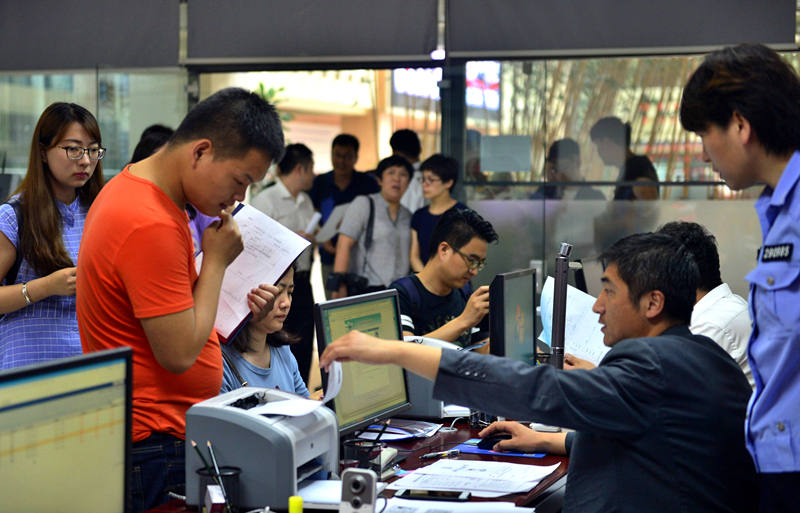Tianjin initiative illustrates difficulty of attracting suitable applicants
By Zhang Yi | China Daily | Updated: 2018-07-26 07:21

On May 16, the Tianjin government announced that people age 40 or younger with bachelor's degrees would be allowed to register for hukou in the city without having a job or owning property. The move was part of a drive to attract more young people to the northern port municipality.
Within 20 hours of the announcement, about 300,000 people had applied online, while many lined up overnight to hand in registration documents, according to the Tianjin Human Resources and Social Security Bureau.
However, the policy backfired to a certain extent as the city received applications from people who had no intention of moving to Tianjin.
Chen, a woman from Chengde, Hebei province, who only gave her family name, said she experienced hope and regret in the three days she spent in Tianjin unsuccessfully attempting to obtain hukou.
After graduating in 2014, the 27-year-old returned to Chengde and started working for a State-owned enterprise.
"I have a good career as a project cost engineer and I can live in my home city," she said.
Earlier this year, Chen married a man who works in local government, and they are expecting their first child.
"We actually want Tianjin hukou so our child will be able to take the gaokao (the national university entry exam) in Tianjin, instead of Hebei. So, when the policy was announced, we wanted to grab the opportunity," Chen said.
Hebei has a huge population and few universities. As a result, competition for college places is intense in the province, while Tianjin has a much higher admission rate.
However, on May 18, Tianjin amended its hukou policy, saying that people who were already working in other cities were not eligible, meaning Chen would have to give up her job before applying.
"One of my colleagues went to Tianjin on the day the policy was announced and obtained hukou. We took action several days later and were told we had to transfer our registration documents to the city. When I see my colleague in the office, I feel so regretful that we didn't seize the chance," Chen said.
"We haven't thought about living or working in Tianjin because we both have good careers and it's not possible to give up our jobs. After all, jobs are still more important than hukou, and the policy may be amended in the future," she added.
Sun Rui, a researcher at the Chinese Academy of Personnel Science, which is affiliated to the Ministry of Human Resources and Social Security, said: "The core of talent introduction is to put people in the proper job and give full play to their talent. However, many cities are too anxious to issue policies and the effects may not be good."
The latest available statistics show that by May 21, about 5,800 newcomers had obtained hukou in Tianjin.
























